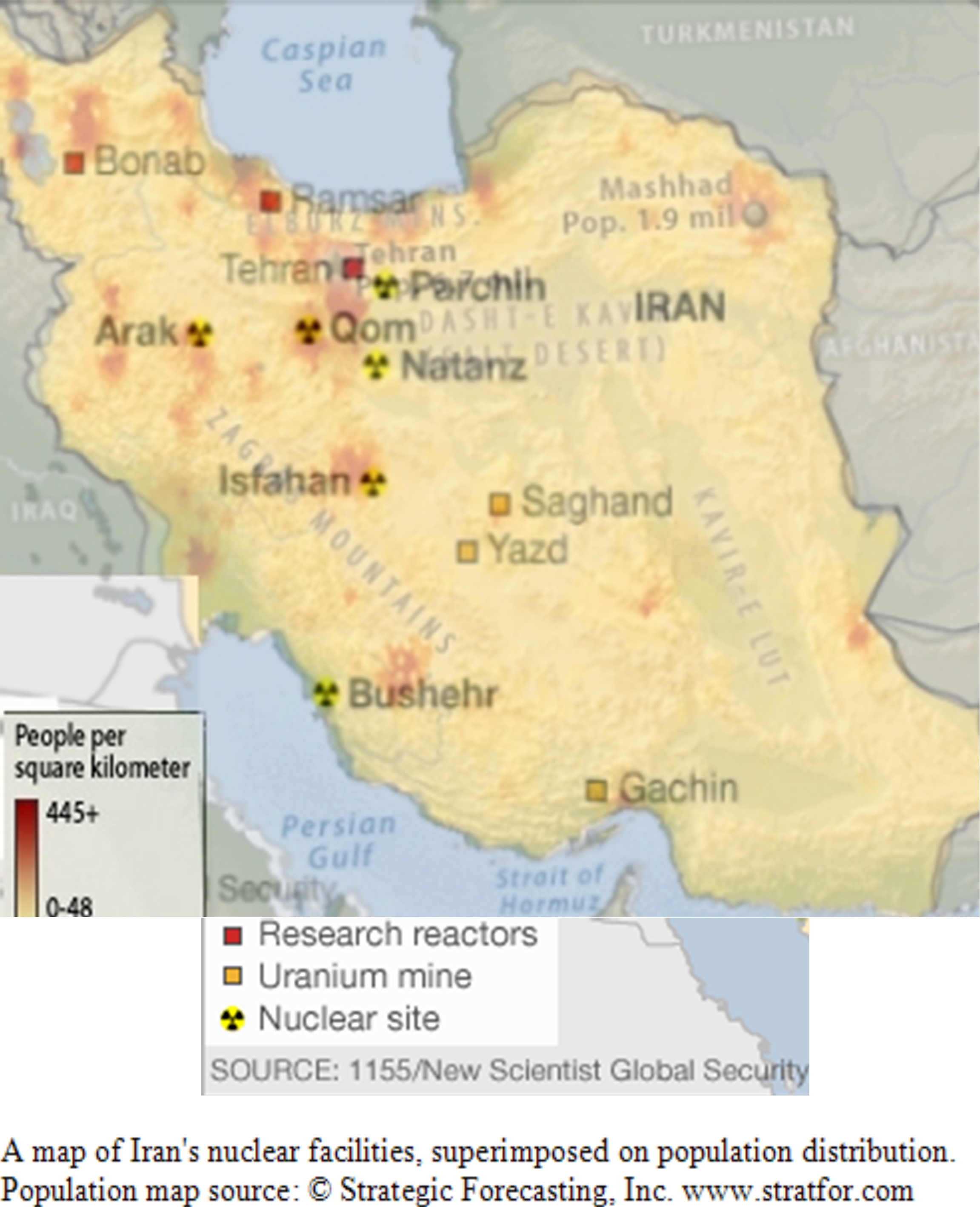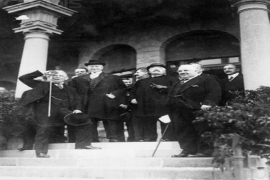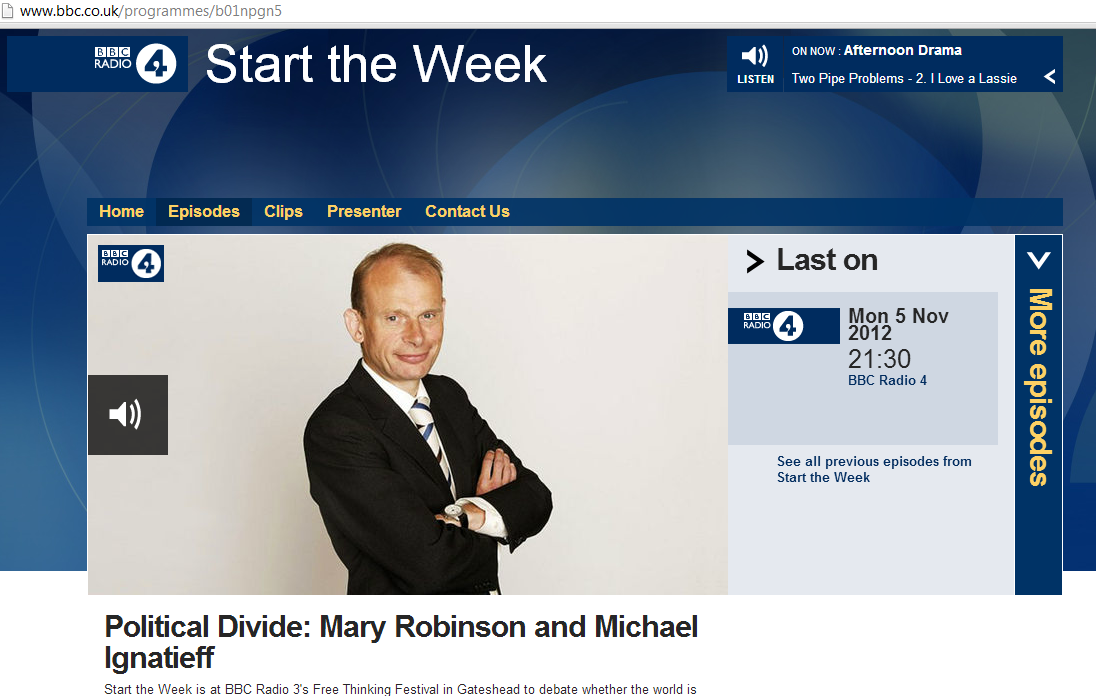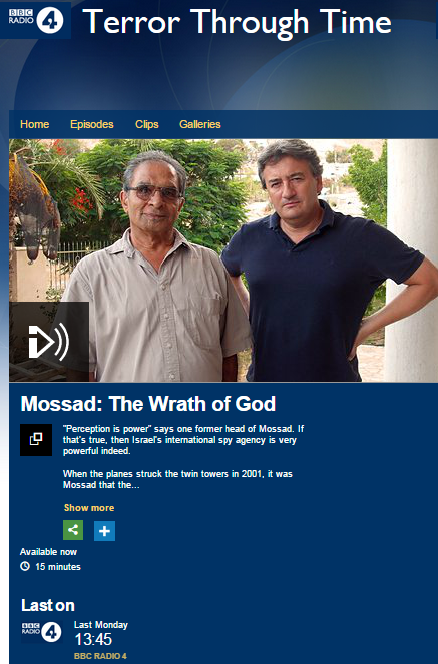A guest post by Oded Ben-Joseph, a Tel Aviv-based freelance writer
Fizzle – industry jargon for the failure of a nuclear device to fully detonate.
The IAEA (International Atomic Energy Agency) seems to be rising from the ashes of its reign by Mohammed ElBardei.
Finally, it is unequivocally recognizing that Iran isn’t merely interested in nuclear fission for reducing its utility bills. This resounding yet belated IAEA affirmation of the existential threat on Israel relieves somewhat its decade long isolation on this issue, enduring many a call to be patient, have faith in partial sanctions and refrain from acting militarily. Understanding the roots of the international climate belittling the danger shows how the pursuit of nuclear disarmament fails miserably and even predictably, when trying to apply cold war paradigms – that had some success in the past – to today’s realities.
A few weeks before the new IAEA report, the British-American Security Information Council (BASIC) released its own study of global nuclear developments. BASIC is a think tank based in the US and UK which admirably seeks to promote a nuclear weapon free world, by transforming the “[nuclear] debate into a cooperative search for global security”.
In its report, BASIC chronicles the forecasted multi-billion dollar investments and developments amongst the “widely accepted” nuclear powers, in a warning against a rising global danger of nuclear catastrophes and weapon proliferation. Its main conclusion warns of an impending, dangerous “New era of global nuclear force modernization and growth”.
If one accepts the underlying assumption that the nuclear genie can be bottled back, this worthy initiative would be quite in its element, but for leaving one or two major protagonists – Iran is not mentioned anywhere in it – and mis-prioritizing others.
Curiously, the US seems to be at the top list of BASIC’s worries, as its planned $700bn nuclear forces upgrade budget leaves the statistics of all other countries in the dust, a fact that seems to impress BASIC’s researches no end. Russia, (or its report figures, at least) trails behind with a mere $70bn figure. Despite the attempt to convey “The story behind the numbers”, the report fizzles* out completely in this regard.
The US and its western allies lead the world not just in nuclear investments, but nuclear transparency, down to reporting the number of warheads. The same can hardly be said for most of the Eastern nuclear powers where transparency tends to remain exclusively in the jargon of opticians and fashion designers rather than government officials, particularly concerning military matters.
While the report does touch on this point, it could be blunter in making the comparison – however easier it is to vilify the US and other democracies than places where critics are an endangered species; where tradition has swifter means of plugging leaks than with investigative congress committees.
“Because nuclear accidents happen, and can kill millions” (A tag from the BASIC website).
The unasked question remains: what is more dangerous, storing 10,000 warheads under a rational, relatively scrutinized and secure chain of command, under the executive powers of elected officials, or having a mere 5 bombs running amok in a rogue state with terror group connections, their millions of intended victims at the mercy of a tyrannical leader’s many sided prophetic soul?
In the post-cold-war era, it sometimes seems only an accident will save humanity. Can the quantitatively obsessed BASIC researches honestly not get the difference between nations that will use the bomb only in a desperate situation – those that celebrate the end of wars, from those that celebrate their beginning?
Taking refuge behind the eminent academic cloak of remit, by claiming that their study was limited to declared or widely believed nuclear weapon holding states, does not hold (heavy) water anymore; one wonders what proof would satisfy the report to increase its girth to include Iran in the “widely believed” category – the latest IAEA report or a million bodies?
Perhaps not even that will suffice for that kind of myopic scrutiny, as the Iranians might use one of the many terror factions under their influence to carry out the holy task deniably. In a 2004 interview with Al-Ahram, ELBardei expressed concern of nuclear weapons “leaking” to terrorists, but said: “Such groups cannot be deterred by any deterrent, nuclear or other.” ElBardei misses the point – terror groups can so far only get nuclear weapons from states, and those most emphatically are deterred by a variety of measures; and imposing a “nuclear weapon free” Middle East, as he wanted, will only play into the hands of those regimes that aren’t accountable to anyone (least of all to their citizens), because on the ground it would really only apply to Israel.
There is also a prejudiced, disproportionate attitude towards Iran and Israel. Israel was held by the media as “known to have nuclear weapons” for many years even when the evidence available was only circumstantial, such as CIA reports citing “Israeli acquisition of large quantities of uranium, partly by clandestine means” to support a conclusion that “Israel already has produced nuclear weapons.”
By contrast, in Iran’s case, the world seemingly insists on conscientious, immaculately researched proofs – Could it be that because Israel’s detractors know that if Israel has nuclear weapons, they don’t have to do anything about it, while if Iran does, they would?
While Israel’s main Dimona nuclear plant is located in its most barren area – the Negev Desert, the Iranian regime’s dispersal of its own facilities, mostly not exactly in the remotest areas of Iran, increases the risk to local population in an event of an attack, which would have to be devastating indeed to succeed.
The Hezbollah apple seemingly doesn’t fall too far from the tree here.
What then, can the world do now, to put the glowing toothpaste back in its tube? The type of sanctions attempted until now, doesn’t seem to be working. What might have an effect is vocally supporting Israel’s right for self defence (dreaming here), or at least totally refraining from cautioning Israel and pleading for its patience – which it has already shown.
Airtight international isolation – a severe trade and military blockade, and implicit support for an Israeli strike – doesn’t have to be public, “just as long as everybody knows”, a phrase so immortalized in the TV series ‘Yes Prime Minister’ – might actually convince Iran that the cost of constructing and testing its weapon are too high, and will then, at least temporarily, prevent an Israeli attack.
Related articles
- CiF piece by Brian Whitaker on “why media believes worst about Iran” draws on conspiracy blog (cifwatch.com)
- Tin-Pot Pravda: Guardian editorial scolds Israel for taking Iranian nuclear threat seriously (cifwatch.com)
- Jonathan Freedland to Israel: I love you, I love you not. (cifwatch.com)
- Pat Condell on the endemic antisemitism which informs the Palestinian cause (cifwatch.com)
- At the Guardian’s online bookshop, antisemitism is shipped within 24 hours! (cifwatch.com)
- Guardian warns of dangerous saber rattling by anti-Iranian Sunni-Zionist Alliance (cifwatch.com)
- Why weren’t these deleted? CiF essay about Rosh Hashana elicits antisemitic comments (cifwatch.com)
- Guardian reader comment of the day: On the prospect of a few million dead Israelis (cifwatch.com)





